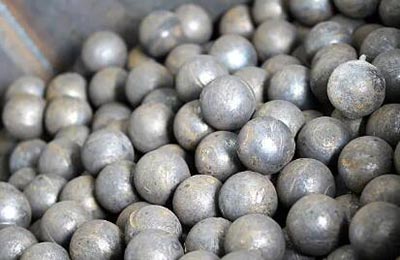What are the grades of steel balls?
Views: 900 Update Date:Nov 04 , 2024
Steel balls are manufactured in various grades, which are determined by their composition, mechanical properties, and intended applications. Here are some common grades of steel balls:
1. Chrome Steel Balls:
- Grade 10: High precision, often used in high-performance applications. Tolerance of ±0.0010 inches.
- Grade 25: Medium precision, suitable for general use. Tolerance of ±0.0025 inches.
- Grade 100: Standard precision, commonly used in applications where perfect roundness is not critical. Tolerance of ±0.005 inches.
2. Stainless Steel Balls:
- 304 Stainless Steel: Good corrosion resistance and moderate strength, often used in food processing and medical applications.
- 316 Stainless Steel: Higher corrosion resistance than 304, often used in chemical and marine environments.
3. Carbon Steel Balls:
- ABEC (Annular Bearing Engineering Committee): Grades range from 1 to 9, with higher numbers indicating greater precision. ABEC-1 is suitable for low-speed applications, while ABEC-9 is used in high-speed or high-precision applications.
5. High Carbon Steel Balls:
- These have higher carbon content and are typically used in applications requiring high hardness and wear resistance, such as in ball mills.
6. Plastic or Ceramic Balls:
- Though not steel, these may also be categorized alongside steel balls for use in specific applications (like lightweight, corrosion-resistant cases).
7. Specialty Grades:
- Some manufacturers offer specialty grades of steel balls tailored to specific applications, such as those requiring non-magnetic properties or ultra-high precision.
The choice of grade often depends on the specific requirements of the application, including factors like load-bearing capacity, resistance to wear, corrosion resistance, and operating environment.
Prev: What does forged steel mean?
Next: What are carbon steel balls used for?
1. Chrome Steel Balls:
- Grade 10: High precision, often used in high-performance applications. Tolerance of ±0.0010 inches.
- Grade 25: Medium precision, suitable for general use. Tolerance of ±0.0025 inches.
- Grade 100: Standard precision, commonly used in applications where perfect roundness is not critical. Tolerance of ±0.005 inches.
2. Stainless Steel Balls:
- 304 Stainless Steel: Good corrosion resistance and moderate strength, often used in food processing and medical applications.
- 316 Stainless Steel: Higher corrosion resistance than 304, often used in chemical and marine environments.
3. Carbon Steel Balls:
- Used in applications that require high strength and wear resistance but do not require corrosion resistance. Common in bearings and industrial machinery.

- ABEC (Annular Bearing Engineering Committee): Grades range from 1 to 9, with higher numbers indicating greater precision. ABEC-1 is suitable for low-speed applications, while ABEC-9 is used in high-speed or high-precision applications.
5. High Carbon Steel Balls:
- These have higher carbon content and are typically used in applications requiring high hardness and wear resistance, such as in ball mills.
6. Plastic or Ceramic Balls:
- Though not steel, these may also be categorized alongside steel balls for use in specific applications (like lightweight, corrosion-resistant cases).
7. Specialty Grades:
- Some manufacturers offer specialty grades of steel balls tailored to specific applications, such as those requiring non-magnetic properties or ultra-high precision.
The choice of grade often depends on the specific requirements of the application, including factors like load-bearing capacity, resistance to wear, corrosion resistance, and operating environment.





